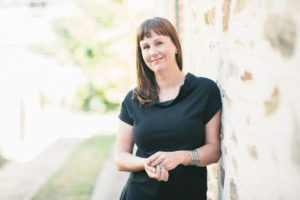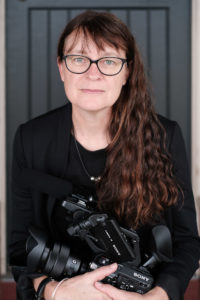

Dr Kylie Cardell spends her days studying biographical literature, a space that for much of history has lacked women’s voices and provided minimal chances for women to tell their own stories.
“In the past, biography and memoir were traditionally the domain of figures with notable achievements in the public sphere – and more often than not, of famous men,” she says.
Thankfully, young women are now increasingly offered opportunities to share their stories through their own words.
“My favourite is the story of Jade Hameister OAM, polar explorer, environmental activitist and women’s rights advocate,” explains Dr Cardell. “She completed a polar hat-trick when she was 16, and uses her platforms to promote feminist issues and mobilise young women to environmental causes.
“As you can imagine, that led to her being the subject of some awful comments from sexist commentators, one being about how a women’s place is in the kitchen. So the next time she was in the South Pole, she posed with a sandwich and challenged her male critics to ski down to the South Pole to eat it.”

As a cinematographer, Helen Carter has made a name for herself in a male- dominated industry and is excited to finally see her female colleagues getting the recognition they deserve.
“Until recently, women have been largely unknown for working in this area, but we’ve had a few big wins that show change is finally happening. We’ve got the first Australian woman nominated for an Oscar in Cinematography and first woman president of the Australian Cinematographers Society,” says Ms Carter.
“Women are finally being trusted to shoot large-budget films.”
Ms Carter says that despite slow progress, she hopes the next generations of women can find a place for themselves, regardless of their choices or circumstances.
“We need encouragement for women in the workplace, and more opportunities for women to work in jobs we want, with work conditions appropriate for leading a normal life, including the choice to also look after children,” she says.
“We need to give women a spot at the table, to give them a voice.”

